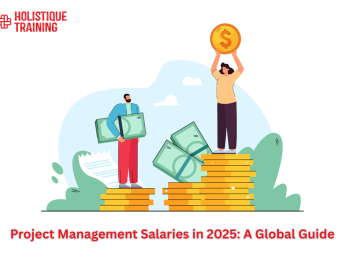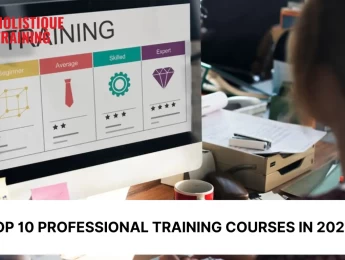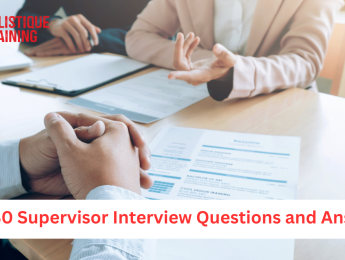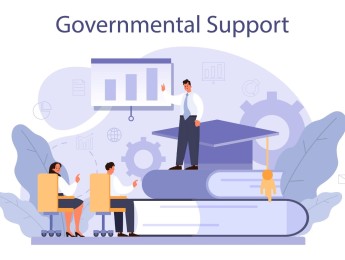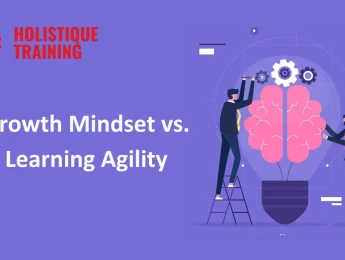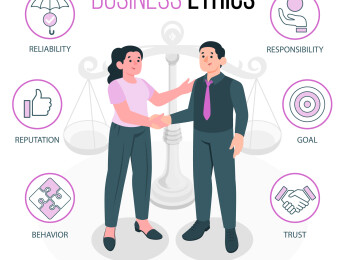- Table of Contents
- Introduction
- Telltale Signs of a Bad Deal
- Overpromised, underdelivered
- Lack of transparency
- High-pressure tactics
- Your Intuition Never Lies
- The Power of Gut Feelings
- Balancing Intuition with Data
- Learning from Past Experiences
- Seeking Confirmation
- Trusting Your Decision
- How to Spot a Good Deal
- Research Is Your Best Friend
- Consult Experts and Mentors
- Analysing Risk vs. Reward
- Adapting to Market Dynamics
- Due Diligence and Patience
- Good vs. Bad Deals in Marketing
- Good vs. Bad Deals in Real Estate
- Turning a Bad Deal into a Good One through Negotiation
- Identify Points of Flexibility:
- Play the Long Game:
- Seek win-win solutions:
- Effective Communication:
- Leveraging Emotional Intelligence:
- Be Prepared:
- Leverage Alternatives:
- How Emotions Influence Decision-Making
- Fear of missing out (FOMO):
- Anchoring Effect:
- Confirmation Bias:
- Loss Aversion:
- Overconfidence:
- Emotional Regulation:
- Framing and Language:
- Conclusion
Introduction
Navigating the world of deals and opportunities can be a tricky endeavour. Whether you're a savvy shopper, a real estate investor, or a marketing professional, knowing how to distinguish a good deal from a bad one can save you time, money, and a whole lot of headaches. In this comprehensive guide, we'll explore the telltale signs of a bad deal, the importance of trusting your intuition, and effective strategies to spot those golden opportunities. Furthermore, we'll delve into the realms of good and bad deals in marketing and real estate, providing you with a well-rounded understanding of deal evaluation.
Telltale Signs of a Bad Deal
Recognising a bad deal is often the first step in safeguarding your interests. Here are some warning signs to look out for:
Overpromised, underdelivered
- Promises without Substance: One of the most conspicuous signs of a bad deal is when it's laden with grandiose promises but lacks substance. Be sceptical if someone guarantees extravagant returns, unheard-of discounts, or results that seem too good to be true. For instance, in the world of investment, if a scheme assures you astronomical gains with no clear explanation of how they will achieve them, it's a clear indicator of a potential scam.
- Unrealistic Expectations:A deal that sets expectations unrealistically high, without solid evidence or historical data to support those expectations, is often a red flag. This is especially relevant in the world of startups and business ventures where projections should be based on market research and a clear understanding of the competitive landscape.
Lack of transparency
- Hidden Fees and Costs:Transparency is the cornerstone of any trustworthy deal. If you discover hidden fees or undisclosed costs after the fact, it can lead to financial surprises that you were not prepared for. Always scrutinise contracts and agreements to ensure that all terms and financial obligations are clearly spelled out.
- Ambiguous Terms and Conditions: The fine print matters. If you come across vague or convoluted terms and conditions that are open to interpretation, it's a cause for concern. A reputable deal should have terms that are straightforward and easily understood, leaving no room for ambiguity or misinterpretation.
High-pressure tactics
- Urgency without Justification: Some deals employ high-pressure tactics by creating a false sense of urgency. They may claim that the offer is time-sensitive, and you must act immediately to secure it. However, legitimate opportunities usually allow for thoughtful consideration. Pressure to make quick decisions can be a tactic to discourage due diligence.
- Limited Information Sharing:Another high-pressure tactic is when the other party withholds crucial information until you commit. For instance, in real estate, you might be pressured to make an offer before you've had a chance to inspect the property thoroughly. This lack of transparency can lead to unpleasant surprises down the road.
These signs should not be taken in isolation but considered as part of a broader due diligence process. If you encounter multiple warning signs in a deal, it's a strong indicator that you should proceed with caution or seek professional advice.
Remember, the consequences of falling for a bad deal can be financially and emotionally draining. Always take the time to investigate, ask questions, and seek second opinions when you encounter deals that raise doubts. A good deal should stand up to scrutiny and provide you with confidence that your interests are protected.
Your Intuition Never Lies
While data and analysis play a vital role in deal evaluation, your intuition can be a powerful ally. Here's how to harness it effectively:
The Power of Gut Feelings
- Subconscious Processing:Intuition, often referred to as your "gut feeling" or "sixth sense," is your mind's way of processing vast amounts of information at a subconscious level. While you may not consciously be aware of all the factors at play, your intuition can swiftly assess complex situations and provide a "feeling" about them.
- Emotional Radar: Intuition is your emotional radar. It can pick up on subtle cues, body language, and even unspoken words during a negotiation. When something doesn't align with the information you've gathered or the expectations you've set, your intuition sends up a signal, urging you to take a closer look.
Balancing Intuition with Data
- Data-Driven Decisions:While intuition is a powerful guide, it's most effective when complemented by data-driven decision-making. Data provides the rational foundation for your choices, helping you analyse risks, benefits, and potential outcomes objectively.
- Intuition as an Early Warning System: Think of intuition as an early warning system that prompts you to investigate further. When your intuition sends up a flag, it's an invitation to dig deeper, gather more data, and validate or challenge your initial instincts.
Learning from Past Experiences
- Intuition Informed by Experience: Your intuition is also informed by your past experiences. Over time, you've encountered various situations, some successful and some not. Your intuition draws from this wealth of experience, helping you avoid repeating past mistakes and recognising patterns that may not be evident to others.
- Tuning Your Intuition: To sharpen your intuitive abilities, reflect on past decisions and the outcomes they produced. When did your intuition serve you well, and when did it lead you astray? Learning from both successes and failures can help you fine-tune your intuitive judgement.
- The Wisdom of Mistakes: Remember that even when your intuition appears to have led you down the wrong path, there's often wisdom to be gained from the experience. These moments can be valuable teachers, helping you refine your intuition for future deals.
Seeking Confirmation
- Using Intuition as a Starting Point:In the deal-making process, consider using your intuition as an initial filter. When assessing opportunities, ask yourself, "Does this deal feel right?" If your intuition raises concerns, it's a cue to proceed cautiously and investigate further.
- Validating with Data:After your intuition has played its role, seek to validate your feelings with concrete data and evidence. If your intuition suggests a deal is promising, look for supporting facts and figures that align with your gut feeling.
Trusting Your Decision
- Confidence in Your Choices:Ultimately, trusting your intuition means having confidence in your decisions. When you've conducted thorough research, combined it with your intuition, and made an informed choice, you can move forward with a sense of assurance.
- Learning to Trust: Learning to trust your intuition can take time, especially if you've previously relied solely on logic and data. However, as you witness your intuition guiding you towards successful deals and away from potential pitfalls, that trust will grow stronger.
In short, your intuition is a remarkable tool in deal evaluation. It's not a mystical force but rather a product of your brain's ability to process and synthesise vast amounts of information and experience. By balancing intuition with data, learning from past experiences, seeking validation, and ultimately trusting your intuition, you can harness this powerful tool to make informed, confident decisions in the world of deals. It's a skill that, when honed, can serve you well in both personal and professional endeavours.
How to Spot a Good Deal
Recognising a good deal involves a combination of art and science. Here are some strategies to help you identify opportunities worth pursuing:
Research Is Your Best Friend
- Market Analysis: In various fields, including investing, entrepreneurship, and real estate, thorough market analysis is fundamental. Study market trends, historical data, and growth projections. Understanding the bigger picture allows you to spot opportunities that align with market dynamics.
- Competitive Landscape:Examine the competitive landscape to identify gaps and areas of potential differentiation. A good deal often involves filling a niche or offering a unique proposition that sets it apart from competitors.
- Customer Insights:In marketing and product development, customer insights are invaluable. Conduct surveys, focus groups, and market research to understand customer needs, pain points, and preferences. A good deal addresses real customer demands effectively.
- Financial Due Diligence:For investments and business deals, conduct rigorous financial due diligence. Scrutinise financial statements, cash flow projections, and profitability. A good deal should demonstrate a clear path to financial viability and growth.
Consult Experts and Mentors
- Leveraging Expertise: Seek advice from experts or mentors who have deep knowledge and experience in the domain you're dealing with. They can provide valuable insights, offer guidance, and help you navigate complexities you may not be aware of.
- Mentorship: A mentor can offer more than just information—they can share their wisdom and help you avoid common pitfalls. Having a trusted mentor can be an invaluable asset in spotting and evaluating good deals.
- Professional Networks:Build and leverage your professional networks. Attend industry events, conferences, and join relevant associations. Often, good deals are unearthed through connections and discussions within these networks.
Analysing Risk vs. Reward
- Risk Assessment: Every deal carries some level of risk. It's essential to assess these risks thoroughly. Identify potential challenges, vulnerabilities, and external factors that could impact the deal's success.
- Reward Potential:On the flip side, evaluate the reward potential. What are the expected returns, and how do they compare to the level of risk involved? A good deal should offer a compelling reward relative to the risks undertaken.
- Risk Mitigation Strategies:Develop strategies to mitigate risks. Whether it involves diversifying investments, securing contingencies, or having an exit plan, being prepared for potential setbacks is a hallmark of good deal evaluation.
- Long-term vs. Short-term: Consider the long-term viability of a deal versus short-term gains. While a deal might yield immediate benefits, it's essential to assess its sustainability and potential for lasting success.
Adapting to Market Dynamics
- Staying Agile: Markets are dynamic and subject to change. A good deal spotter stays agile and is open to adjusting their approach as circumstances evolve. Be ready to pivot or seize new opportunities as they arise.
- Timing Matters: Timing can be crucial. In real estate, for example, buying during a market downturn can lead to significant future gains. Understanding market cycles and recognising when the timing is right is a skill honed by experienced deal spotters.
- Scenario Planning:Engage in scenario planning. Consider multiple outcomes and prepare for contingencies. A good deal is one that stands strong even in challenging scenarios.
- Measuring Against Your Goals: Always align your deal evaluation with your personal or business goals. A deal might be great for one person but unsuitable for another based on their objectives. A good deal should move you closer to achieving your specific goals.
Due Diligence and Patience
- Thorough Due Diligence:This cannot be emphasised enough. Conduct due diligence meticulously. In real estate, this means property inspections and legal reviews. In investing, it involves deep analysis of the asset or company. Don't rush this critical step.
- Avoiding Impulse Decisions:Avoid making impulsive decisions. Good deals often require patience. Take your time to weigh all factors and gather necessary information. Rushing into a deal can lead to costly mistakes.
- Consulting a Team: In complex deals, assembling a team of experts, including lawyers, accountants, and consultants, can be invaluable. They can provide specialised insights and ensure you cover all bases in your evaluation.
By following these comprehensive steps, you'll be well-equipped to spot those elusive good deals. Remember that good deals are not always apparent on the surface; they often require diligent research, expert guidance, and a thorough understanding of your objectives and the market dynamics. Cultivate these skills, and you'll enhance your ability to make informed, profitable decisions in various deal-making scenarios.
Good vs. Bad Deals in Marketing
In the realm of marketing, distinguishing between good and bad deals is crucial for long-term success. Here's a comparison:
Table 1: Good vs. bad deals in marketing
Criteria | Good Marketing Deals | Bad Marketing Deals |
Measuring ROI | Focus on ROI and data-driven decisions | Lack of clear metrics or ROI assessment |
Ethical considerations | Adhere to ethical marketing practices | Exploitative tactics or false advertising |
Building long-term relationships | Prioritise customer satisfaction | Short-term gains at the expense of trust |
Good vs. Bad Deals in Real Estate
Real estate deals can be substantial investments, and the difference between a good and bad deal can impact your financial future. Here's a comparison:
Table 2: Good vs. bad deals in real estate
Turning a Bad Deal into a Good One through Negotiation
Negotiation skills are essential in the world of deals. Even when faced with a seemingly bad deal, effective negotiation can transform it into a favourable outcome. Here's how:
Identify Points of Flexibility:
In negotiations, it's crucial to identify areas where both parties can make concessions. Look beyond the initial terms and explore aspects such as pricing, payment schedules, or additional benefits that can be adjusted to create a more favourable outcome. Skilled negotiators are adept at finding common ground and creative solutions that benefit both sides, effectively turning a challenging deal into a win-win scenario.
Play the Long Game:
Negotiation doesn't always have to lead to an immediate agreement. Sometimes, turning a bad deal into a good one involves patience and a long-term perspective. By building rapport and maintaining open lines of communication, you can lay the groundwork for future negotiations that may yield better results. Additionally, being willing to walk away from a bad deal can demonstrate your commitment to securing a fair agreement and prompt the other party to reconsider their terms.
Seek win-win solutions:
Negotiation should never be a zero-sum game where one party's gain is the other's loss. Instead, focus on finding win-win solutions that benefit all parties involved. By understanding the underlying interests and priorities of both sides, you can identify opportunities for compromise and collaboration. A deal that satisfies the needs of all parties is more likely to be sustainable and mutually beneficial in the long run.
Effective Communication:
Effective negotiation hinges on clear and open communication. Ensure that both parties fully understand each other's perspectives, interests, and constraints. Listen actively to their concerns and objectives, and articulate your own clearly. Misunderstandings and miscommunication can often lead to failed negotiations. Skilled negotiators use active listening and empathy to foster productive dialogues.
Leveraging Emotional Intelligence:
Emotional intelligence plays a significant role in negotiation. In fact, astudy conducted by the University of Twente showed that emotional intelligence influences the negotiation behaviour employed by organisational buyers. Understanding the emotions and motivations of the other party can help you navigate difficult negotiations more effectively. By recognising emotional triggers and managing your own emotions, you can maintain a constructive atmosphere and prevent conflicts from escalating. Skilled negotiators use emotional intelligence to build trust and rapport, which can ultimately lead to better deal outcomes.
Be Prepared:
Preparation is key to successful negotiation. Prior to entering a negotiation, thoroughly research the other party's background, interests, and objectives. Understand the market conditions and industry standards relevant to the deal. By being well-prepared, you can anticipate potential objections, counter arguments, and negotiation tactics, allowing you to respond effectively and increase your chances of achieving a favourable outcome.
Leverage Alternatives:
Having alternatives or a "Plan B" can strengthen your position in negotiations. If you have viable alternatives, you're less dependent on the current deal and can negotiate from a position of strength. Conversely, a lack of alternatives can make you more vulnerable to unfavourable terms. Skilled negotiators know how to create and leverage alternatives to increase their bargaining power.
In summary, the art of negotiation is a multifaceted skill that can transform a seemingly bad deal into a good one. By identifying points of flexibility, playing the long game, seeking win-win solutions, mastering effective communication and emotional intelligence, being well-prepared, and leveraging alternatives, you can navigate negotiations with finesse and turn challenging situations into opportunities for mutual benefit and growth.
How Emotions Influence Decision-Making
Understanding the psychology behind deals can provide valuable insights into why people make certain choices. Emotions play a significant role in deal-making, and being aware of this can help you navigate deals effectively.
Fear of missing out (FOMO):
The fear of missing out can be a powerful motivator in deal-making. When individuals perceive an opportunity as scarce or time-sensitive, they may rush to make decisions without thorough evaluation. In fact, according toTrustPulse, FOMO prompts around 60% of individuals to make purchases. Understanding the influence of FOMO on decision-making can help you remain calm and rational, ensuring that you don't succumb to impulsive choices.
Anchoring Effect:
Anchors are the initial pieces of information presented in a negotiation or deal. They serve as reference points that influence subsequent judgments. Being aware of the anchoring effect allows you to critically assess whether the initial terms presented in a deal are reasonable or if they are designed to skew your perception of value. Effective negotiators often aim to reset anchors to more favourable terms during the negotiation process.
Confirmation Bias:
Confirmation bias refers to the tendency of individuals to seek information that confirms their existing beliefs or desires while ignoring or dismissing contradictory information. In the context of deal evaluation, confirmation bias can lead to selective attention and the overlooking of red flags or potential risks. To counter this bias, actively seek out dissenting opinions or facts that challenge your assumptions, ensuring a more balanced and objective assessment.
Loss Aversion:
Research shows that our sensitivity to losses is approximately 2.5 times greater than our sensitivity to gains of the same magnitude, and this is exactly what loss aversion means. Recognising this bias can help you make more rational decisions when evaluating deals. It's essential to assess the potential risks and losses associated with a deal objectively, rather than being driven solely by a fear of missing out on potential gains.
Overconfidence:
Overconfidence can lead to misguided decision-making in deals. Some individuals tend to overestimate their knowledge, abilities, or the accuracy of their judgments. Being mindful of overconfidence can prompt you to seek external opinions, consult experts, or conduct thorough research, reducing the likelihood of making uninformed or overly optimistic decisions.
Emotional Regulation:
Effective deal-makers understand the importance of emotional regulation. They can manage their own emotions during negotiations and deal evaluations and recognise emotional signals in others. By staying composed and empathetic, you can build trust, maintain a cooperative atmosphere, and make more objective decisions.
Framing and Language:
The way information is framed or presented can significantly impact perception and decision-making. Savvy deal-makers pay attention to the language and framing used in proposals and negotiations. They recognise when framing is designed to evoke emotional responses and can reframe information to promote a more rational evaluation.
In summary, understanding the psychology of deals, particularly how emotions influence decision-making, is crucial for making informed and rational choices. By recognising the effects of FOMO, the anchoring effect, confirmation bias, loss aversion, overconfidence, and the importance of emotional regulation and framing, you can navigate deals with greater clarity and make decisions that align with your long-term objectives and interests.
Conclusion
Distinguishing good deals from bad ones requires a blend of sharp intuition, diligent research, and a keen understanding of your specific domain, be it marketing or real estate. By recognising telltale signs of a bad deal, trusting your intuition, and following proven strategies for spotting good deals, you can navigate the complex world of opportunities with confidence. Whether you're a consumer, investor, or professional, the ability to identify the gems among the rubble will be a valuable skill for a successful future.
Remember, the best deals aren't always the ones that scream for your attention. They are often hidden gems waiting for those who are patient, discerning, and willing to put in the effort to uncover them. So, the next time you encounter a tempting offer, take a step back, evaluate it thoroughly, and trust your instincts. Your financial well-being may depend on it.






